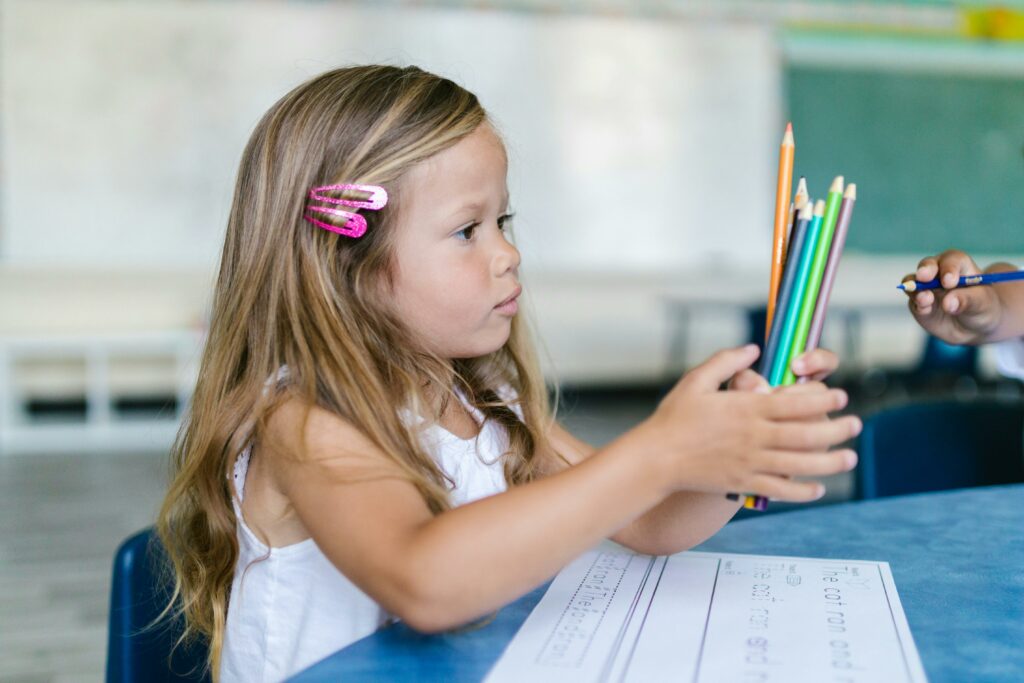At TEMA Therapy, we specialize in comprehensive evaluations for gifted and talented programs. Our team of experts uses scientifically validated tools to assess your child’s intellectual, academic, and problem-solving strengths. Whether you’re preparing for school admissions or simply want to understand your child’s potential, we’re here to guide you every step of the way.

Gifted and talented programs offer a challenging and enriching educational experience for students who excel beyond their peers. However, gaining admission often requires rigorous testing. These assessments typically include:

Some parents may sense that their child has unusually high intellectual abilities or exceptional aptitude in one or more academic areas. Often, these perceptions are accurate. At TEMA Therapy, we provide Testing for Gifted and Talented programs to help determine if your child qualifies for accelerated programs designed for high-achieving students. For example, the parents may initiate an application process for the John Hopkins Center for Talented Youth if they have the required results of the cognitive testing that is performed at our Center.

In New Jersey, eligibility for public school Gifted and Talented programs is determined through a comprehensive process. According to the New Jersey Department of Education:
“District boards of education shall make provisions for an ongoing K-12 identification process for gifted and talented students that includes multiple measures, including but not limited to achievement test scores, grades, student performance or products, intelligence testing, parent, student, and/or teacher recommendation, and other appropriate measures.”
While IQ testing is just one component of the evaluation, it provides valuable insight into your child’s intellectual abilities compared to their peers.
In New York State, cognitive testing plays an even more critical role in securing placement in accelerated programs. Our psychologists are licensed in both New York and New Jersey, and their evaluations are recognized as independent psychological assessments. This is particularly beneficial for bilingual students, as our testing can help identify their strengths and eligibility for specialized programs in NYC.
Specialty: Clinical psychologist working with adults, children and families. Testing and Therapy
Licenses: New York, New Jersey PSYPACT
Languages: English, Russian, Ukrainian
Specialty: Clinical psychologist performing testing for adults, adolescents, and children.
Licenses: New York, New Jersey PSYPACT
Languages: English
Specialty: Adult and child therapy. Group therapy for adults
License: Licensed Professional Counsellor
Languages: English, Russian, Hebrew
Specialty: Therapy and testing performed under the supervision of clinical director
Languages: English and Spanish
Specialty: Speech-Language/Disphagia Therapist, PROMPT Therapist
Licenses: New York, New Jersey
Languages: English, Russian
Specialty: Sensory Integration, Emotional Regulation, Competitive Sports Training
Certificates: Personal Trainer, Sensory Integration, Parkour
Languages: English, Spanish
Specialty: Psychotherapist working with teens, adults, couples, and families
Licenses: New York, New Jersey
Languages: English, Russian
Specialty: Psychotherapist working with the elderly and people with acute and chronic medical conditions
Licenses: New York, New Jersey
Languages: English, Russian
Speciality: Psychotherapist working with children, teens, and adults. Group therapy for adults.
Licenses: New Jersey
Languages: English, Russian
Specialty: Health & Wellness Family Executive functioning Coach.
Languages: Russian, Ukrainian, English (Intermediate)
I can't thank Tema Therapy enough for their incredible support in managing my ADHD. The therapists here are compassionate, knowledgeable, and understanding. They took the time to truly understand my struggles and provided me with effective coping strategies. The therapy sessions have made a significant positive impact on my life, helping me regain focus, improve productivity, and boost my self-esteem. Tema Therapy is a game-changer for anyone seeking assistance with ADHD.
Emily R
Tema Therapy has been an essential part of my journey in overcoming anxiety disorders. The therapists are empathetic, patient, and highly skilled in providing the right tools to manage anxiety effectively. The sessions were tailored to my specific needs, and the techniques I learned have been instrumental in reducing panic attacks and daily anxiety levels. While there's always room for improvement, I can confidently say that Tema Therapy is a place where anxiety disorders are truly understood and addressed.
Jason L
Tema Therapy has been a ray of hope in my battle against depression. The therapists here create a warm and nurturing environment, allowing for open and honest discussions. Their compassionate approach helped me feel safe while exploring the root causes of my depression. Through their guidance and evidence-based techniques, I've experienced significant progress in my emotional well-being. Tema Therapy is a beacon of light, reminding us that recovery from depression is possible.
Samantha H
Tema Therapy provided me with invaluable support during the most challenging period of my life—grieving the loss of a loved one. The therapists demonstrated exceptional empathy and understanding, creating a safe space for me to express my emotions and navigate the complexities of grief. Their expertise in grief counseling helped me find healthy coping mechanisms, allowing me to gradually heal and honor the memory of my loved one. Tema Therapy is an oasis of compassion during times of profound loss.
Daniel M
Tema Therapy has been instrumental in unlocking my true potential despite learning disabilities. The therapists here possess an in-depth understanding of different learning challenges and provide personalized strategies that cater to individual needs. Their patience, encouragement, and innovative techniques have empowered me to overcome obstacles and succeed academically. Although progress can take time, Tema Therapy has proven to be a transformative resource for individuals with learning disabilities, offering a path towards brighter futures.
Olivia K
Have more questions? Email us at [email protected] for further queries.
A gifted child test is a specialized gifted assessment used to understand a child’s abilities across reasoning, verbal skills, pattern recognition, and overall cognitive strengths. These formal assessments help determine whether a child meets criteria for a gifted program, enrichment programs, or advanced learning paths. By examining a child’s cognitive abilities and learning profile, families gain a clearer picture of how to support both academic achievement and emotional needs.
Gifted testing provides quantitative measures such as IQ score, academic achievement data, and rating scales that many districts, gifted education programs, and private school admissions teams require. Test results help decision-makers evaluate whether a student is performing above grade level, shows gifted characteristics, or demonstrates strengths in a specific subject area. Families can use the testing results to advocate for appropriate interventions, enrichment programs, or a higher level learning environment that supports the child’s unique needs.
All gifted assessments are conducted by a licensed psychologist or trained professional experienced in evaluating gifted students and gifted learners. After testing is complete, the clinician reviews the standardized test data, rating scales, and achievement testing scores to produce a clear learning profile. You will receive test results explained in detail, along with follow-up questions answered and guidance on your child’s educational needs.
Parents often seek gifted testing when they notice signs of giftedness such as advanced abilities in language arts or math, rapid pattern recognition, strong problem-solving skills, or a long attention span in areas of interest. Gifted kids may also ask complex questions at an early age, master basic skills quickly, or show deep curiosity about a specific subject area. A gifted child test helps clarify whether these behaviors align with gifted characteristics or accelerated learning needs.
440 West Street, Suite 323, Fort Lee, NJ, 07024
[email protected]
Phone: (347) 879 0202
Copyright © 2025 | All Rights Reserved | Created By Invisio Solutions Ltd